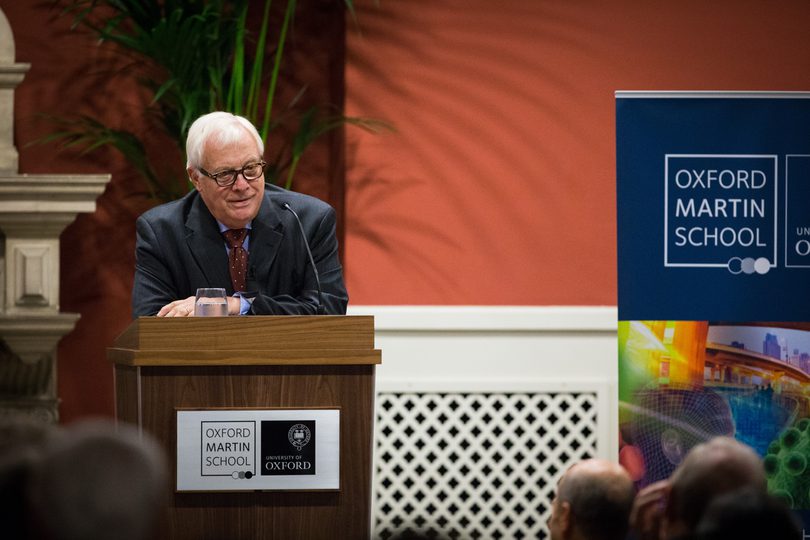
From geopolitical power struggles to increasing xenophobia, Lord Patten, Chancellor of the University of Oxford, delivered a wide-ranging and in-depth look at the impact of deteriorating international co-operation when he spoke at the Oxford Martin School on 28 October.
The former Governor of Hong Kong, a member of the Oxford Martin Commission for Future Generations, said states faced problems that did not recognise national boundaries, such as cyber security and climate change, and that since the September 11th attacks the system of global co-operation had become fractured.
Listing China’s relationships with its neigbours, the clash between Sunni and Shia Muslims in West Asia, and Russia’s actions under the leadership of Vladimir Putin as crises that could not simply be “muddled through”, he said much work was needed to break gridlock and find practical ways of solving problems.
Video: 'Gridlock and train crashes: what happens when the world loses the habit of cooperation?'